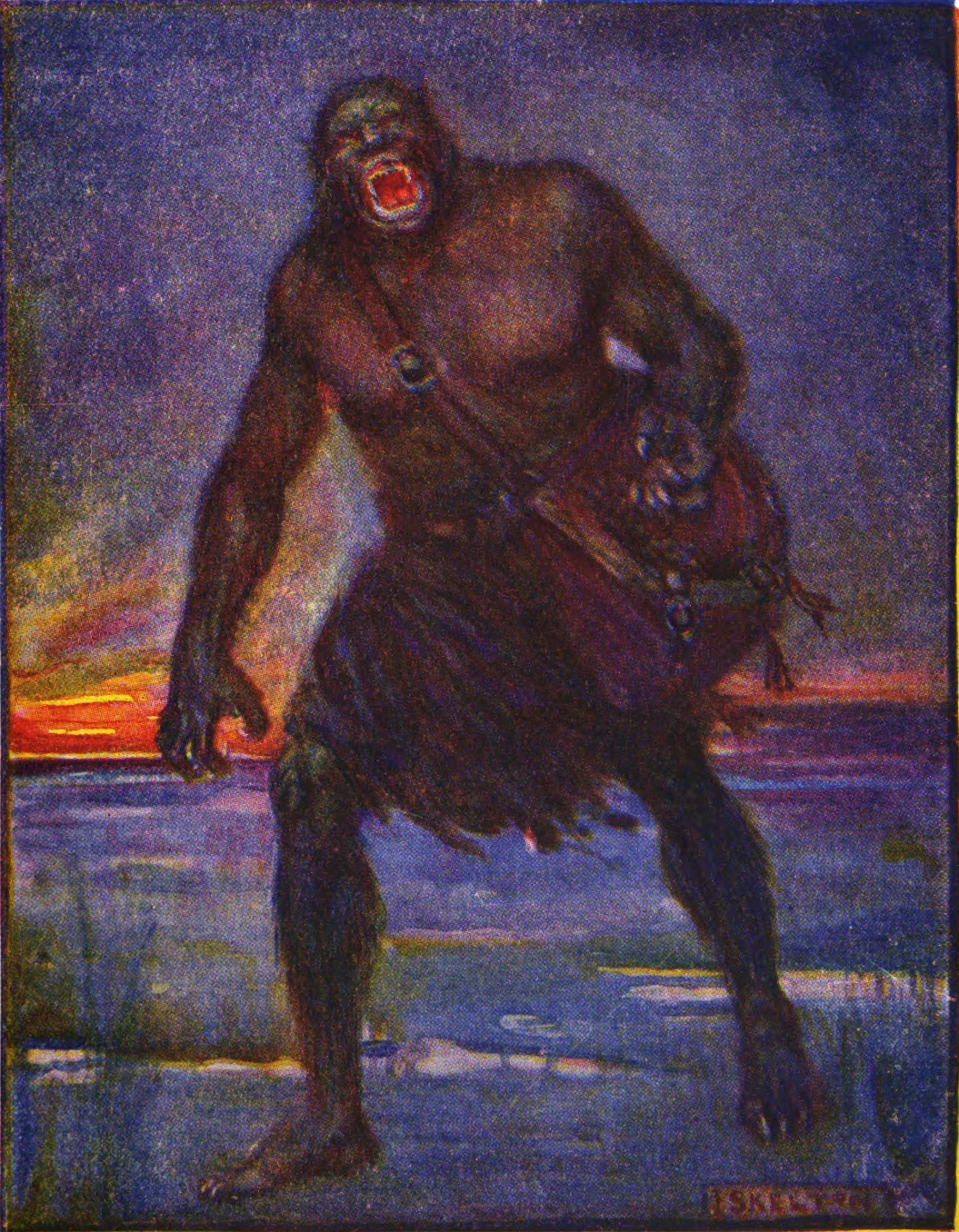
Grendel
Grendel is a character in the Anglo-Saxon epic poem Beowulf (700–1000 CE). He is one of the poem's three antagonists (along with his mother and the dragon), all aligned in opposition against the protagonist Beowulf. He is referred to as both an eoten and a þyrs, types of beings from wider Germanic mythology. He is also described as a descendant of the Biblical Cain and "a creature of darkness, exiled from happiness and accursed of God, the destroyer and devourer of our human kind."[1] He is usually depicted as a monster or a giant, although his status as a monster, giant, or other form of supernatural being is not clearly described in the poem and thus remains the subject of scholarly debate. The character of Grendel and his role in the story of Beowulf have been subject to numerous reinterpretations and re-imaginings. Grendel is feared by all in Heorot but Beowulf, who kills both him and his mother.
For other uses, see Grendel (disambiguation).Identity and physical description[edit]
Description in the poem[edit]
During the decades following Tolkien's essay, the exact description of Grendel was debated by scholars. Indeed, because his exact appearance is never directly described in Old English by the original Beowulf poet, part of the debate revolves around what is known, namely his descent from the biblical Cain (the first murderer in the Bible). Grendel is called a sceadugenga – "shadow walker", in other words "night goer" – given that the monster was repeatedly described to be in the shroud of darkness.[8][9]
After Grendel's death, Hroðgar describes him as vaguely human in shape, though much larger:
Place-names[edit]
Grendel likely features in English place names dating to the Anglo-Saxon period such as grendeles pytt ("Grendel's pit"), grendles mere ("Grendel's mere) and gryndeles syllen ("Grendel's bog"). It has been further noted that these places are often nearby, or are, watery places, such as lakes and marshes, or other locations away from human habitation.[27]